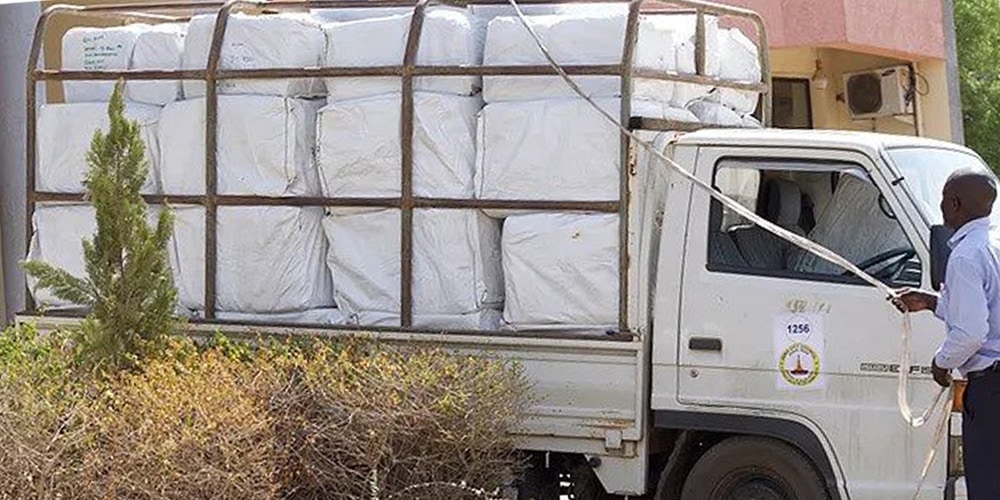
A team of Seventh-day Adventist health professionals in South Sudan are helping to prepare the community for malaria season as part of the Total Member Involvement (TMI) initiative across the country. In cooperation with the country’s Ministry of Health, they distributed 5,400 mosquito nets in various centers.
“During the imminent rainy season, which comes with malaria in its train, the people of Juba, the capital city of South Sudan, will find refuge in the mosquito nets,” said team leader Daniel Machuor.
According to a World Health Organization (WHO) report, South Sudan had a population of more than 12 million in 2017. That year, 1.3 million people were infected with malaria. “This disease is a leading cause of death in South Sudan today. It is the number one killer,” said WHO South Sudan representative Evans Liyosi. The deadly mosquito-borne disease accounts for 65 percent of all illnesses reported in health facilities across the country. Every week it infects more than 77,500 people and kills nearly 220, most of them children under the age of five.
TMI is an initiative of the Seventh-day Adventist world church to get every church member involved in sharing Jesus through outreach, community, and evangelistic efforts. In South Sudan, mosquito nets distributed in TMI meetings were not enough for the population in desperate need. According to Machuor, organizers had to set priorities.
“After assessing the needs in the centers, we have identified pregnant and lactating mothers that have children under five years,” Machuor reported. “These are the first beneficiaries because they are the most vulnerable.”
Health Education and Evangelism
As a government employee, Machuor said, he was proud of the friendship and good relationships Adventist medical personnel have built with their employers. Because of that, they were able to convince the Ministry of Health that TMI meetings were an opportune time to care for the health of the people, he added. Consequently, they were given medical equipment, medicines, and labor force.
For these Adventist health practitioners, there can be no other better way to preach the gospel, one medical team volunteer said. “Medical camps and health education are part and parcel of evangelism.”
According to UN statistics, the vast majority of the people in South Sudan are poor and cannot afford medical services. For a full month, those who attended TMI meetings were being treated free of charge. The medical team was dispatched throughout Juba to roughly 16 centers. The team included fifty-five medical personnel, six doctors, ten clinical officers, nineteen nurses, and eight registration clerks.
Medical professionals were deployed from one center to another every day. According to the team leader, the goal was to treat 5,000 people before the end of the TMI meetings.
What touched the team most, the leader said, was the fact that local people appreciated the service that they could not afford otherwise. Among the medical personnel were some non-Adventist doctors who had befriended Adventists and joined them in the free medical visits.
Daniel Ogwok, the Executive Secretary of South Sudan Attached Territory (SSAT) and TMI coordinator, asserted that the meetings affected not only the church but the nation at large. He further shared that the church had 550 TMI sites with speakers, 95 of whom were visitors who came from abroad.
With a membership of 38,000, the SSAT territory joined the East-Central Africa Division (ECD) in 2012.
The original version of this story was posted on the East-Central Africa Division news site.